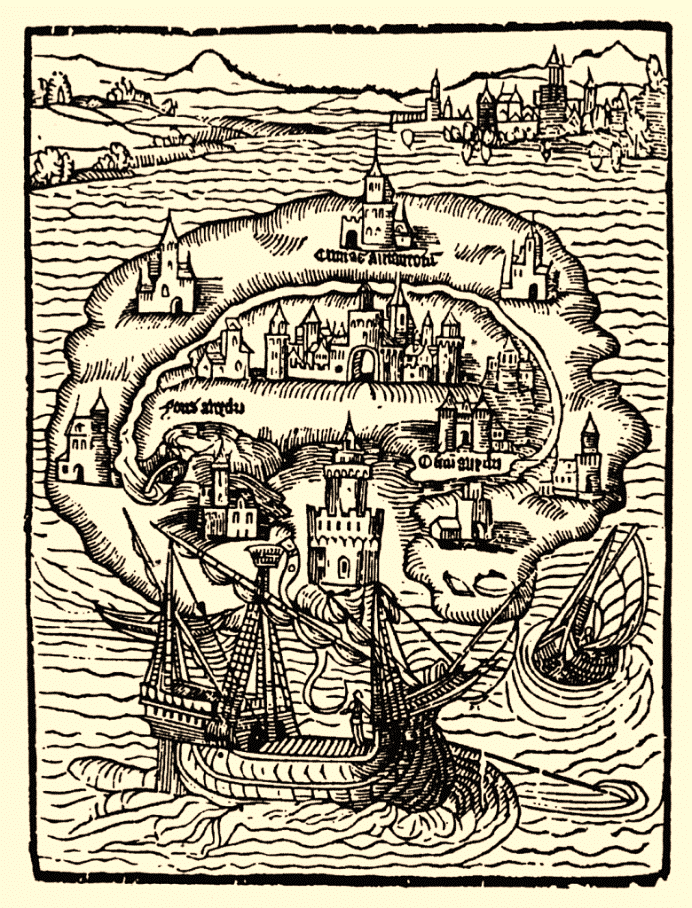


Are you sure you want to reset the form?
Your mail has been sent successfully
Are you sure you want to remove the alert?
Your session is about to expire! You will be signed out in
Do you wish to stay signed in?

Fig 17.1 Thomas More envisaged an ideal, imaginary island he called Utopia
Photo: Unknown Author, Wikimedia Commons.
Featured websites
Website 17.1 How to Save the Planet
Acclaimed naturalist, David Attenborough, outlines how we can create a future in which both people and nature can thrive.
https://m.youtube.com/watch?v=0Puv0Pss33M
Website 17.2 Rewilding
The story of how nature has been restored to a British farm by Isabella Tree.
https://www.youtube.com/watch?v=PpW8qSpoQj8
Website 17.3 Urban farming
A review of sixteen different examples of how innovation and technology can transform urban agriculture.
https://www.greenbiz.com/article/how-16-initiatives-are-changing-urban-agriculture-through-tech-and-innovation
Website 17.4 Sustainable Development Goals
A review of the seventeen SDGs and their related targets with large quantities of supporting data.
https://sdgs.un.org/goals
Website 17.5 Letters to the Earth
The website that outlines the idea behind ‘Letters to the Earth’ and which invites viewers to submit a letter of their own.
https://www.letterstotheearth.com/
George Saves the World by Lunchtime by Jo Readman (Eden Children’s Books 2006).
Helped by his grandpa, George discovers how a range of everyday actions can help reduce his environmental impact.
Greta and the Giants by Zoë Tucker (Francis Lincoln 2019).
Greta (an eco-warrior modelled on Greta Thunberg) finds a way to fight back against the giants who threaten the animals that live in a beautiful forest.
It’s up to Us by Christopher Lloyd (What on Earth Books 2021) explores how nature operates in a world without humans. It then shows the damaging impact people have had on the planet and finishes by proposing a series of new pledges to make a difference – a Terra Carta.
Other resources
A constellation of living heritage
A stimulating and inventive graphic from the UNESCO international heritage site which shows how different aspects of cultural life link to the SDGS
https://ich.unesco.org/dive/sdg/
Change the story
Sustainability stories made by children from different European countries exploring different aspects of change especially suitable for the 9–11-year-olds.
https://stories.changethestory.eu/uk/
Eco-maths
In these educational videos Stefan Gates shows how maths can be used in real world situations to help create a more sustainable future.
https://www.youtube.com/playlist?list=PLcvEcrsF_9zLoSQx5gE5aeisxYWpjEInG
If I could change the world
Find out what one group of students would like to see happen if they could change the world.
https://m.youtube.com/watch?v=wuRURJ9E3iQ
UN Sustainable development goals
In a penetrating critique, Zulfi Ali argues that the SDGs need to be viewed with the context of colonialism and North/South power relations. By promoting a ‘business as usual’ the SDGs buttress global inequality and injustices – our current predicament calls for a much more radical approach.
https://cccu.yuja.com/V/Video?v=73712&node=317727&a=464808621&autoplay=1